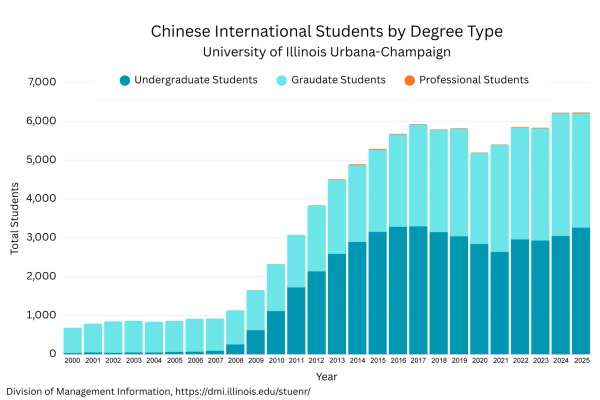Illinois lawmakers call for higher immunization rate in response to measles outbreak
Mar 4, 2015
Last updated on May 10, 2016 at 08:56 p.m.
“We need to fight fear with facts,” said Rep. Greg Harris, D-13, referring to the fear surrounding the measles, mumps and rubella vaccine.
Following the publication of research linking the vaccine to autism by British gastroenterologist Andrew Wakefield in 1998, many parents all over the country have opted out of vaccinating their children. The study has since been debunked and Wakefield’s medical license revoked, but the superstition toward the vaccine has remained.
Harris is one of the four sponsors for Illinois House Resolution 144, which calls on the Illinois Department of Public Health to craft new administrative rules to require health examinations and vaccinations for every child in the state’s school system by the start of the 2015-2016 school year.
Rep. Michael Zalewski, D-23, authored the resolution in response to the recent outbreak of measles in Illinois. On Feb. 25, public health officials confirmed the 15th case of the disease in Illinois, 13 of which are connected to the outbreak at the KinderCare Learning Center in Palatine.
Get The Daily Illini in your inbox!
“We want the department to be able to handle this problem effectively,” Zalewski said. “It would cover all vaccinations the department deems necessary.”
Harris said one of the reasons he decided to sponsor Zalewski’s resolution was the highly contagious nature of measles. According to the Centers of Disease Control and Prevention, if exposed, nine out of 10 people will contract the virus if they are not vaccinated.
“It’s an important public health concern to be sure that not only each individual child is safe … but the general public is kept safe also from diseases that can be easily spread in group settings,” Harris said. “This is a disease which up until now had been eradicated, but suddenly, we’ve seen that it can break out very easily.”
Harris said he is particularly concerned for children with compromised immune systems, who cannot receive the vaccination. These children are specifically mentioned in the resolution, which states that higher immunization rates will offer greater protection from the virus.
In a joint statement released earlier this month by the Illinois and Cook County Departments of Public Health, public health officials stressed that diseases like measles can be avoided entirely with vaccination.
“Vaccinations are the safest, most effective way to protect individuals from measles and other potentially dangerous communicable diseases,” public health officials wrote in the statement.
The MMR vaccine does not cause autism in its recipients, though some mild side effects have been known to appear on occasion. According to the National Institutes of Health, one out of four patients who are vaccinated will experience some pain or stiffness in their joints, one in six will develop a fever, one in 20 will develop a mild rash and one in 75 will experience swelling of the glands in their cheeks or neck.
The Centers for Disease Control puts the immunization rate for measles in Illinois at 91.4 percent. This may seem high, but there are more than 100 countries with higher measles vaccination rates than America, including Kenya, 93 percent, Vietnam, 98 percent, and Russia, 98 percent.
Zalewski said he could see why some parents, fearing a link between the MMR vaccine and autism, would choose not vaccinate their children.
A young parent himself, Zalewski said new parents are often faced with making nerve-wracking decisions for their child that they have not had to make before, which is why he hopes to provide them with the best medical information available.
“We want to make sure that any decision they do make is in the best interest of them and their kids,” Zalewski said. “Ultimately, with vaccinations they need to be given every ounce of opportunity to defer to their doctors.”
@jw_daily_illini





